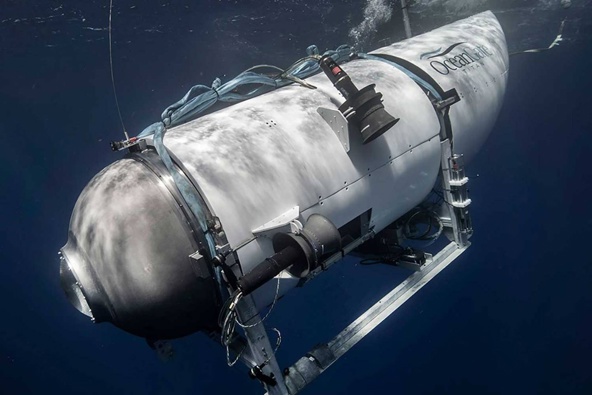I’ll be honest with you, I’ve been utterly compelled from the very start.
I first read about the missing Titan submersible a few hours after it was publicly reported missing, and I’ve been hanging on every update ever since.
That’s not to say I ever thought there might be a happy ending to the whole saga. This is perhaps a confronting thing to say, but in that vessel, at that depth, at that location, an instantaneous catastrophic implosion was a preferable alternative to one in which the occupants suffered over days or were conscious of what was happening.
I just think –more than any other news story in recent memory– the whole thing says so much to us about human nature.
First of all, the occupants themselves. Curious, daring. Fantastically wealthy. Was anyone terribly surprised to learn they were all men? And what does it say about our species that for those people who can afford it, of all the oceans in the World and all the incredible things to see, they chose an already extremely well-documented shipwreck that happens to be in a very tricky and unpleasant stretch of water. When you think about, a trip to a wreck where 1500 people died and you can still catch glimpes of shoes in the sand is a pretty morbid. Did the tourists really want to see the Titanic? Or did they just want to be able to say they’d seen the titanic?
For us, watching from the outside, that a search for five men could engross the World says so much. We are utterly compelled by the horrors of the deep. We compelled by exploration. By hubris. By the faintest hope of an extremely unlikely rescue.
We picture ourselves in that situation. Would I go in that submarine? What would I do now?
Human beings aren’t even-handed in their interest or attention. Sadly, we don’t give nearly the same resource or news coverage to sinking migrant ships filled with poor and nameless people, missing in the Med. Is it just? Of course not.
Ultimately though, nothing in this saga said more about human nature than the CEO of Oceangate, who died with his vessel. Stockton Rush was smart and resourceful enough to build a device which could make it kilometres below the surface of the ocean, but not wise enough to heed the warnings of myriad experts and engineers in what is a very small community. Ultimately every dive was a game of Russian roulette.
As the film director James Cameron noted, there is something awfully poetic about the whole situation and its parallels to the original Titanic disaster, in which a captain blithely ignored warnings and steamed into the path of icebergs.
Ultimately Stockton Rush will be remembered for publicly courting attention and media, boasting of his creation and lambasting his critics, only to perish by the flaws of his own design.
There’s one word for it: Shakesperean.
Take your Radio, Podcasts and Music with you










